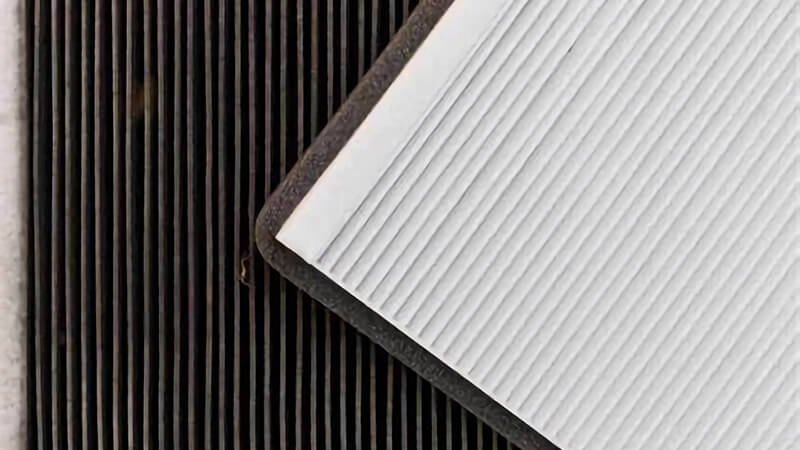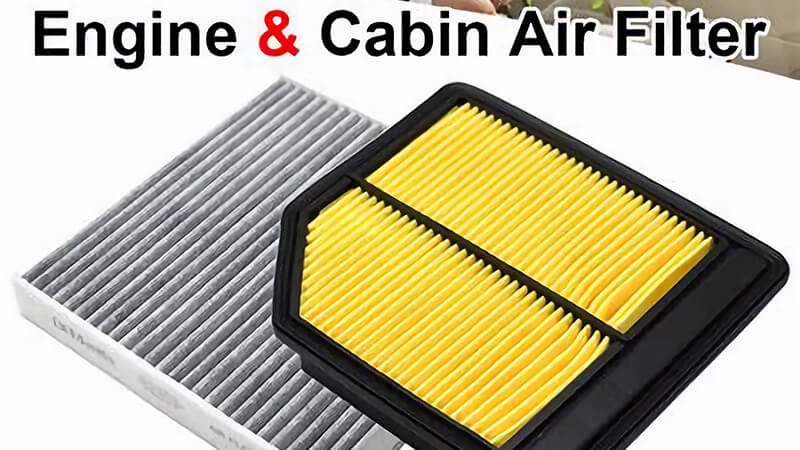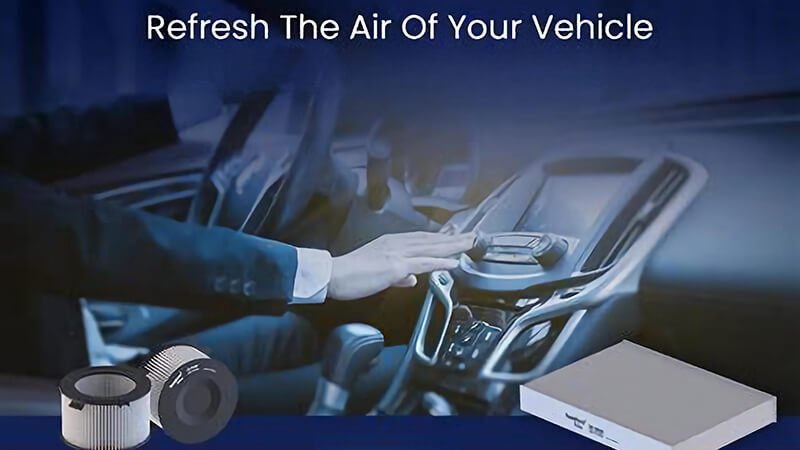Your cabin air filter may seem like a small part of your car. Some people even think it’s optional. But driving without it can lead to big problems fast. I always tell my clients: a simple cabin filter protects both your comfort and your car.
Yes, you can drive without a cabin air filter, but it’s a bad idea. Without it, dust and pollutants clog your HVAC system quickly. You’ll breathe dirty air, and your car’s components will wear out faster.
I’ve seen it again and again. One distributor even told me that promoting cabin filter replacements cut warranty claims on blower motors by 40%. In this article, I’ll explain why this simple product matters so much and answer the key questions many drivers ask.

What happens if I drive with no cabin air filter?
A cabin air filter is often overlooked. Drivers think if the engine runs fine, they’re good to go. But what happens inside the car is just as important as what happens under the hood.
If you drive with no cabin air filter, dirty air enters your cabin and HVAC system. Over time, this causes poor air quality, bad smells, and reduced HVAC efficiency. You and your passengers breathe unfiltered air full of dust, pollen, and pollutants.
Immediate effects
Without a cabin filter1, you may not notice anything right away. The fan will still blow air. But that air won’t be clean. If you live in a city, roadside pollution will flow right into the car. If you live in the countryside, pollen and dust will do the same.
Long-term damage
The HVAC system2 relies on clean airflow. Without a filter, dust builds up on the evaporator and blower motor. This reduces efficiency and can cause system failure. Replacing a blower motor costs much more than replacing a cabin filter.
| Impact Area | With Cabin Filter | No Cabin Filter |
|---|---|---|
| Cabin Air Quality | Clean | Dirty, polluted |
| HVAC Efficiency | Optimal | Reduced, risk of failure |
| Passenger Health | Protected | Exposed to allergens and pollutants |
| Maintenance Costs | Low | High over time |

What happens if cabin air filter is missing?
Some drivers remove their old cabin filter and never replace it. They think they are saving money. In reality, they are creating new problems.
If your cabin air filter is missing, dirt will enter your car’s ventilation system freely. Over time, this can cause permanent damage to HVAC components and expose passengers to harmful air. It can also result in bad odors and poor airflow.
How it affects system components
The cabin filter3 blocks both large and fine particles. Without it, large debris like leaves can enter the fan housing. Fine dust will coat the HVAC system4’s internal surfaces, including the evaporator coil. This reduces efficiency and may cause the system to freeze or fail.
How it affects comfort and health
In cold weather, your defroster may not work well because of airflow blockages5. In hot weather, cooling performance may drop. Meanwhile, every breath you and your passengers take will include dust, pollen, and other irritants.

Is it OK to drive without air filter?
Here we need to be clear. Drivers often confuse the engine air filter and the cabin air filter. Driving without an engine air filter is a serious mistake—it can destroy your engine. But what about driving without a cabin filter?
It is possible to drive without a cabin air filter, but it is not OK. You expose your HVAC system to unnecessary wear and tear and expose passengers to unhealthy air. The small cost of a new filter saves big money and protects your health.
Why manufacturers install cabin filters
Modern cars are designed with the assumption that a cabin air filter6 is in place. The entire HVAC airflow7 depends on this. Removing the filter leaves the system exposed.
Real-world results
I had a client who ran a fleet of delivery vehicles. They tried skipping cabin filters to cut costs. Within one year, they faced a spike in blower motor failures8—many required costly repairs. After returning to a proper replacement cycle, those failures dropped sharply.

How long can you go without changing the cabin air filter?
Now, what about changing the filter—not just having it installed? Many drivers forget this important task. Over time, even the best filter will clog.
You should replace your cabin air filter every 12,000 to 15,000 miles or once a year. If you drive in dusty, polluted, or high-traffic areas, you may need to replace it more often. Check your owner’s manual for exact recommendations.
Signs your cabin filter needs replacing
- Reduced airflow from vents
- Bad or musty odors when running the fan
- Poor defroster performance
- Increased allergy symptoms while driving
Filter types and performance
At Runex Auto, we supply a wide range of cabin filters9:
- Standard particle filters10 block dust and pollen.
- Activated carbon filters11 also block odors and harmful gases.
Activated carbon filters are a great upsell for distributors, and they genuinely improve comfort for end users.
| Filter Type | Benefits | Replacement Interval |
|---|---|---|
| Standard Particle | Blocks dust, pollen | 12,000–15,000 miles |
| Activated Carbon | Blocks dust, pollen, odors, gases | 12,000–15,000 miles, or sooner in polluted areas |
My advice to clients
I tell my distributors this often: replacing cabin filters is one of the simplest ways to protect the vehicle and upsell value to customers. One major European distributor told me that after promoting cabin filter changes, their warranty claims on HVAC components dropped by 40%. That’s a huge result from a simple part.

Conclusion
Yes, your car can physically drive without a cabin air filter12. But it’s a bad idea. You will breathe dirty air, and your HVAC system will wear out faster. Replacing the cabin air filter is cheap, easy, and highly effective. If you haven’t replaced yours recently, now is the time to do it. Both your lungs and your car will thank you.
-
Understanding the benefits of a cabin filter can help you maintain better air quality and protect your health while driving. ↩
-
Learning about HVAC systems in vehicles can help you appreciate the importance of maintenance and clean airflow for efficiency. ↩
-
Understanding the role of a cabin filter can help you maintain your vehicle's HVAC system and improve air quality. ↩
-
Exploring HVAC systems will enhance your knowledge of how to keep your home comfortable and energy-efficient. ↩
-
Learning about airflow blockages can help you troubleshoot and maintain your HVAC system effectively. ↩
-
Understanding the role of cabin air filters can help you appreciate their necessity for vehicle maintenance and air quality. ↩
-
Exploring HVAC airflow will give you insights into vehicle climate control and the impact of filters on performance. ↩
-
Learning about blower motor failures can help you prevent costly repairs and maintain your vehicle's efficiency. ↩
-
Discover the significant advantages of replacing cabin filters for vehicle maintenance and comfort. ↩
-
Understand the role of standard particle filters in maintaining clean air in your vehicle, essential for health and comfort. ↩
-
Learn how activated carbon filters enhance air quality and comfort in your vehicle, making them a worthwhile investment. ↩
-
Find the best cabin air filter from Runex, clicking this link to get all brands of cabin air filters for your business. ↩












